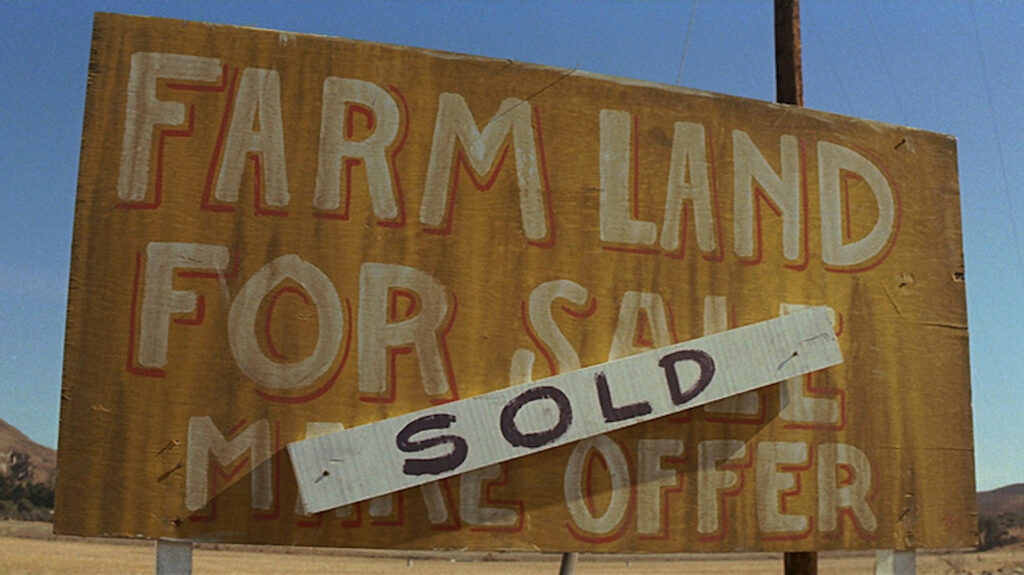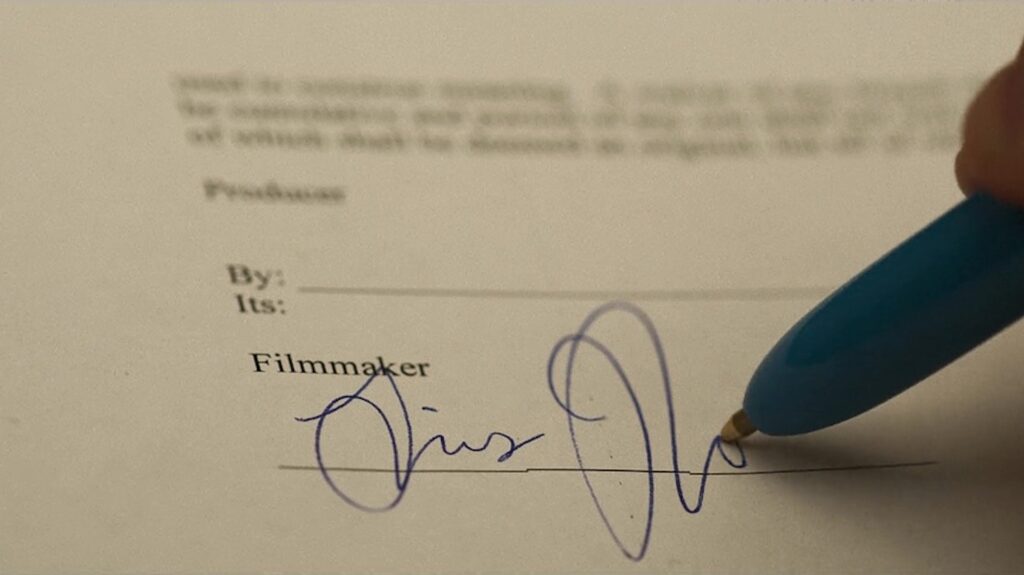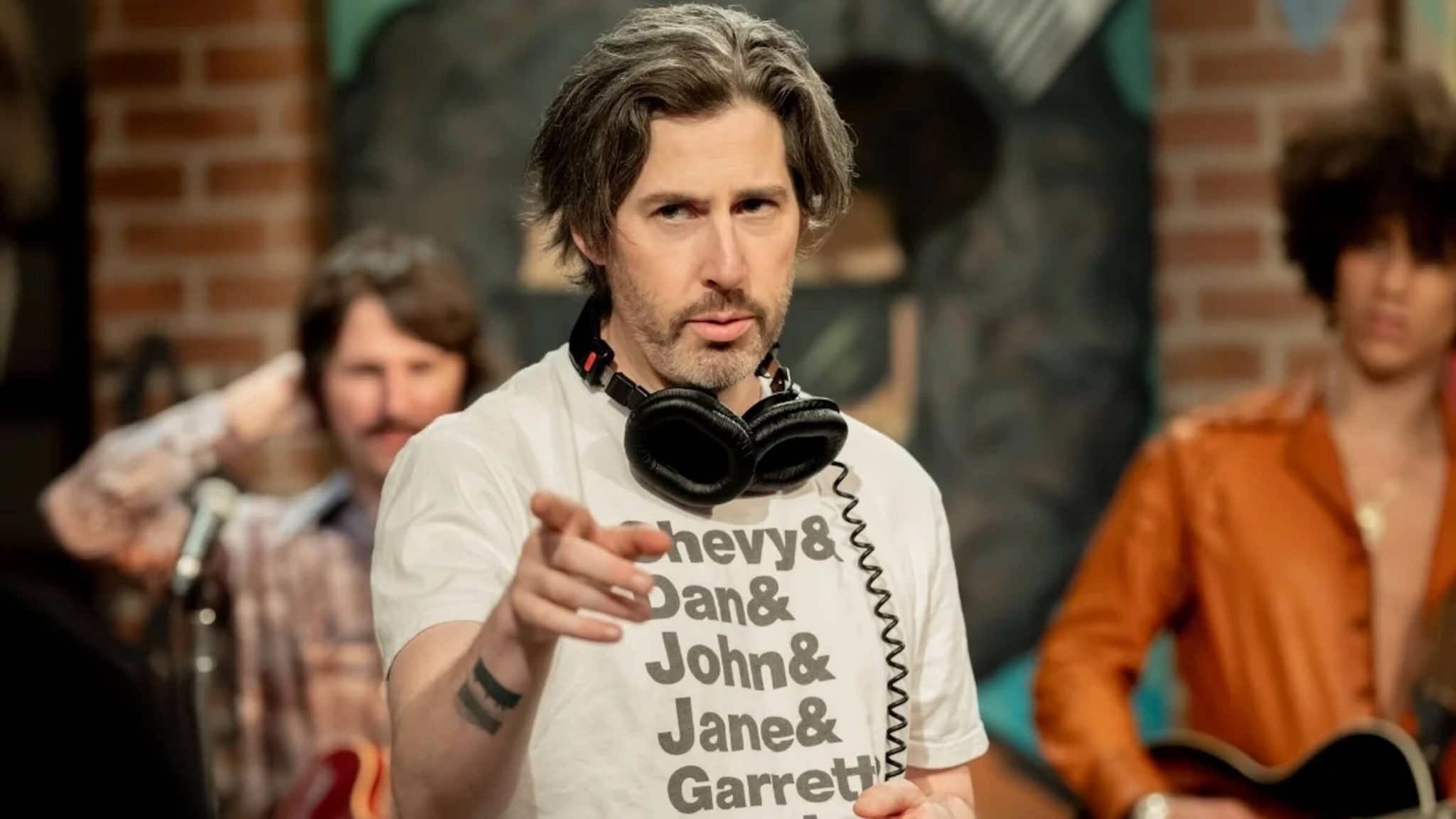Every Type of Screenwriting Contract Explained

Screenwriters must be prepared for what the film/TV/streaming industries offer. Beyond the monetary compensation—far too broad of a topic to cover—it's good for novice screenwriters to understand the many different screenwriting contracts out there and what to expect when you're asked to sign on the dotted line.
Here we offer screenwriters a simple guide to general screenwriting contracts that they can expect to see during their screenwriting journey and career.
Every Type of Screenwriting Contracts Explained
Assignment
Also referred to in legal terms as a work-for-hire agreement, screenwriting assignments are the bread and butter of a screenwriter's career.
When you're hired for a writing assignment, a studio, production company, or network has brought you on board to create and develop a full-length screenplay based on their original concept or existing intellectual property. This could include a producer's idea, an adaptation of a book or series, a concept inspired by a real-life story or article, or reworking a previously acquired script. Essentially, you are being paid to use your writing skills to bring their vision to life on the page, with the ultimate goal of turning it into a movie.
A majority of screenwriting contracts are assignments. While the initial goal for all screenwriters is to sell their own original spec scripts, most professional screenwriters make a living by way of assignments, using their spec scripts as samples for proof of talent and ability to attain work-for-hire agreements.
Read More: 5 Things to Expect During Paid Screenwriting Assignments
Purchase Agreement
A purchase agreement is a contract in which a studio, network, or producer buys a screenwriter's script outright. Sometimes the contract amount is a one-time fee offered to the screenwriter, but these days, contract amounts are split into paywalls, which include:
- Upfront contract commencement fee
- First Rewrite Option upfront payment
- Second rewrite payment upon delivery
- Additional draft payments if the screenwriter is retained
- Production bonus when and if the feature goes into production
All screenwriters need to know that spec script sales are still a possibility in the industry. While they may not be as common as they once were, it's still possible to sell a spec script and see it produced on the big or small screen. Some writers even make six or seven figures on a single sale. However, it's imperative to remember that these success stories are the exception rather than the rule.
Selling a spec script—even for established professionals—is more like winning the lottery or finally seeing the stars align after years of hard work and dedication to the craft. So while it's certainly possible to achieve great success with a spec script purchase agreement, you must have realistic expectations and focus on continuing to hone your craft and build your network in the industry.

'Chinatown' (1974)
Option Agreement
A screenplay option is the only paywall below the contractual steps of actually selling a screenplay or being hired to write one. Options are contractual agreements that grant a studio, network, streamer, or producer exclusive development and shopping rights to your screenplay. This intermediary step comes before the actual acquisition of your script.
Producers and development executives will use option agreements to secure the sole rights to represent the screenplay, package it, and attempt to secure distribution sales and budget for production.
For them to obtain these rights, you will be asked to sign contracts that prohibits you from shopping or packaging the screenplay independently.
Screenplay options usually come with a fee that compensates the writer for taking their screenplay off the market, though the exact amount of this fee (if any) can vary. Back in the screenwriting boom of the 1990s and early 2000s, screenplay options were highly lucrative, earning screenwriters anywhere from $10,000 to $25,000 on average. But these days, especially after the 2007/2008 Writers Guild Strike and economic collapse, Hollywood doesn't offer as much. You can expect anywhere from $500 to $2,500 (if that... see below).
By signing an option agreement, the writer puts their script on hold while the producer or executive attempts to secure funding and distribution for production. Ultimately, the hope is that the option will lead to a successful sale and production of the screenplay. The hard truth is that it's tough to package a spec script written by an unknown writer. But if the concept is good enough, representing something currently highly desirable in the Hollywood market, anything is possible.
Read More: The Screenwriter's Simple Guide to Screenwriting Options

'The Wolf of Wall Street' (2013)
Shopping Agreement
A shopping agreement is a contract in which a screenwriter allows an agent, manager, producer, or executive to "shop" their script to potential buyers, such as studios, networks, streamers, distributors, and production companies. If this sounds strangely like an option agreement, it is. And there's a catch—shopping agreements do not offer monetary compensation.
Options and shopping agreements are essentially the same, except that some options agreements may offer an option fee to you, the screenwriter.
Although signing a shopping agreement is not inherently wrong or an undesirable position to be in, it's essential to consider the implications of doing so when you're not being compensated for your screenplay. Essentially, by signing this agreement, you entrust your script to someone else and rely solely on them to secure a sale or representation. This can be risky, especially when you consider that you won't receive any compensation for taking your script off the market for six months to a year.
Before signing any shopping agreements (or unpaid options), it's crucial to weigh the potential benefits and drawbacks and ensure that you're making an informed decision.
Read More: 10 Steps Screenwriters Can Take to Avoid Writing for Free

'Clueless' (1995)
Collaboration Agreement
When you want to team up with another screenwriter to write a script, you should take care of the legalities of that collaborative partnership with a collaboration agreement (check out this sample provided by the Writers Guild of America). Such agreements ensure both writers are compensated fairly if a collaborative project is sold.
The screenwriters involved can agree on various profit shares from any sale. Most of the time, it's a 50/50 split agreement.

'Oppenheimer' (2023)
Open Writing Assignment
Open Writing Assignment (OWA) is often misinterpreted as a writing assignment or a work-for-hire contracts (mentioned above). It's not.
OWAs are also known as sweepstake pitching, which entails studios, networks, or streamers owning possession of the rights to a property or concept they want to develop into a feature film. To develop them, they will reach out to agencies and management companies to solicit pitches.
Agents and managers then provide their clients with the necessary materials to prepare a pitch, which often involves crafting loglines, a synopsis, a full treatment, conducting research, and even writing script pages. However, despite the considerable effort required, screenwriters typically do this work without any guarantee of compensation or a job offer.
The reality is that multiple writers are competing for the same. The studio may even use their ideas without compensating them, as ideas, concepts, and character types cannot be copyrighted. Even if a writer does manage to secure the job, they may not be entitled to compensation or credit unless they have written at least 33% of the shooting script, according to Guild contract stipulations.
This situation is deeply unfair and amounts to screenwriters working for free, a troubling trend in the industry.
Representation Agreement
A representation agreement is something screenwriters sign for agents and managers. These contracts outlines the terms of the working relationship between you, the screenwriter, and any agent or manager that has agreed to represent you. This includes how they will be compensated, the scope of the services they will provide, the duration of the agreement, and any exclusivity clauses.
Agents generally focus on securing deals for you, while managers provide more hands-on guidance with your career. It's crucial for you to carefully review and negotiate these agreements to ensure you are getting the best representation possible. Agents and managers usually each take 10%-15% of any earnings they secure for you.
Note: Never pay anyone upfront to represent you. Legit representation only works on commission from earnings they secure for you through spec sales, assignments, paid options, writers' room assignments, etc.
Read More: Everything Screenwriters Need to Know About Agents and Managers

'Brand New Cherry Flavor'
Submission Release
A submission release form is a legal agreement between a screenwriter and a company or individual to whom the writer is submitting their work. The form outlines the terms under which the company or individual can use the writer's work and may include compensation, ownership, and credit clauses.
In short, if you query a studio, production company, network, streamer, producer, agent, or manager, they will ask you to sign a release form before they review your work. The purpose is to protect both you and them from any legal disputes that may arise due to the submission process.
---
These are the types of contracts and agreements that you can expect to see in your screenwriting career. Knowing and understanding the details and expectations of each will help you navigate the Film/TV/Streaming industry with ease.
Ken Miyamoto has worked in the film industry for nearly two decades, most notably as a studio liaison for Sony Studios and then as a script reader and story analyst for Sony Pictures.
He has many studio meetings under his belt as a produced screenwriter, meeting with the likes of Sony, Dreamworks, Universal, Disney, and Warner Brothers, as well as many production and management companies. He has had a previous development deal with Lionsgate, as well as multiple writing assignments, including the produced miniseries BLACKOUT, starring Anne Heche, Sean Patrick Flanery, Billy Zane, James Brolin, Haylie Duff, Brian Bloom, Eric La Salle, and Bruce Boxleitner, the feature thriller HUNTER'S CREED, and many produced Lifetime thrillers. Follow Ken on Twitter @KenMovies and Instagram @KenMovies76.
Get Our Screenwriting Newsletter!
Get weekly writing inspiration delivered to your inbox - including industry news, popular articles, and more!






























